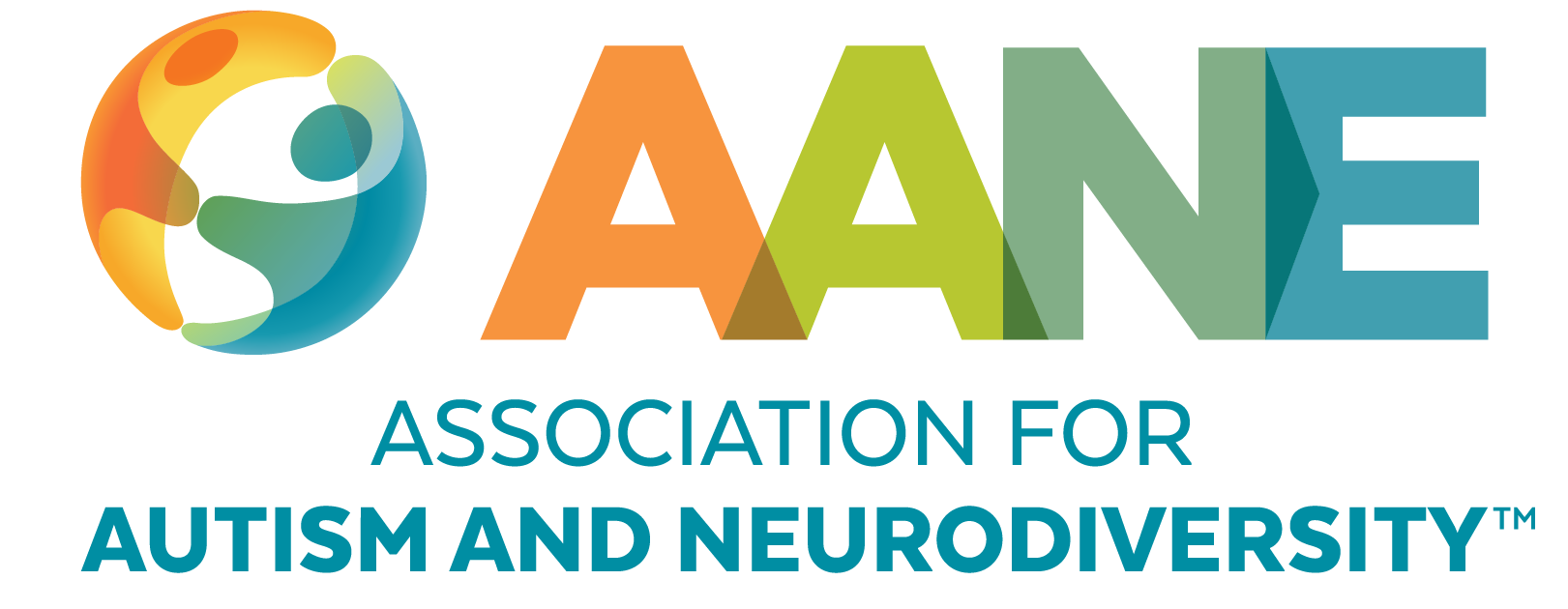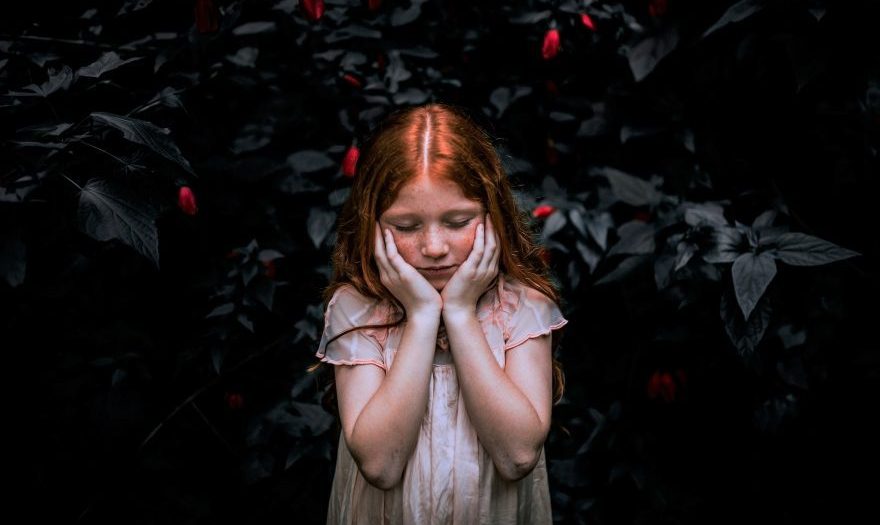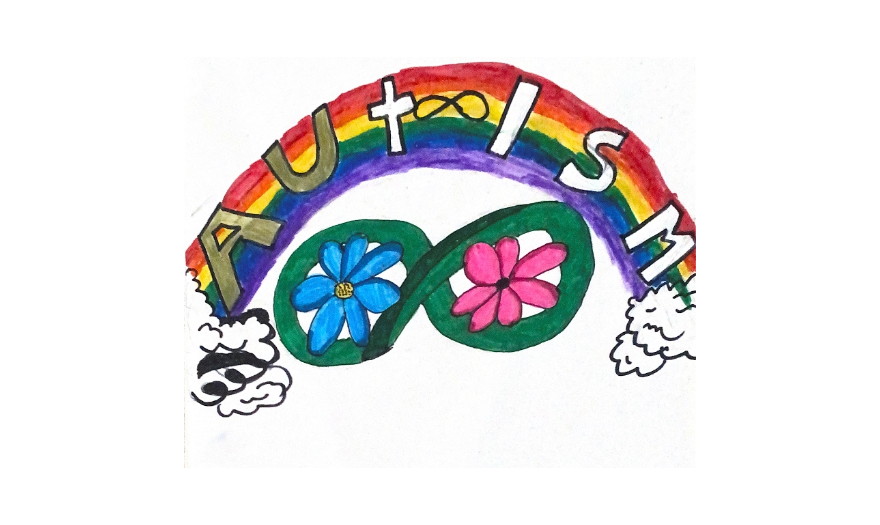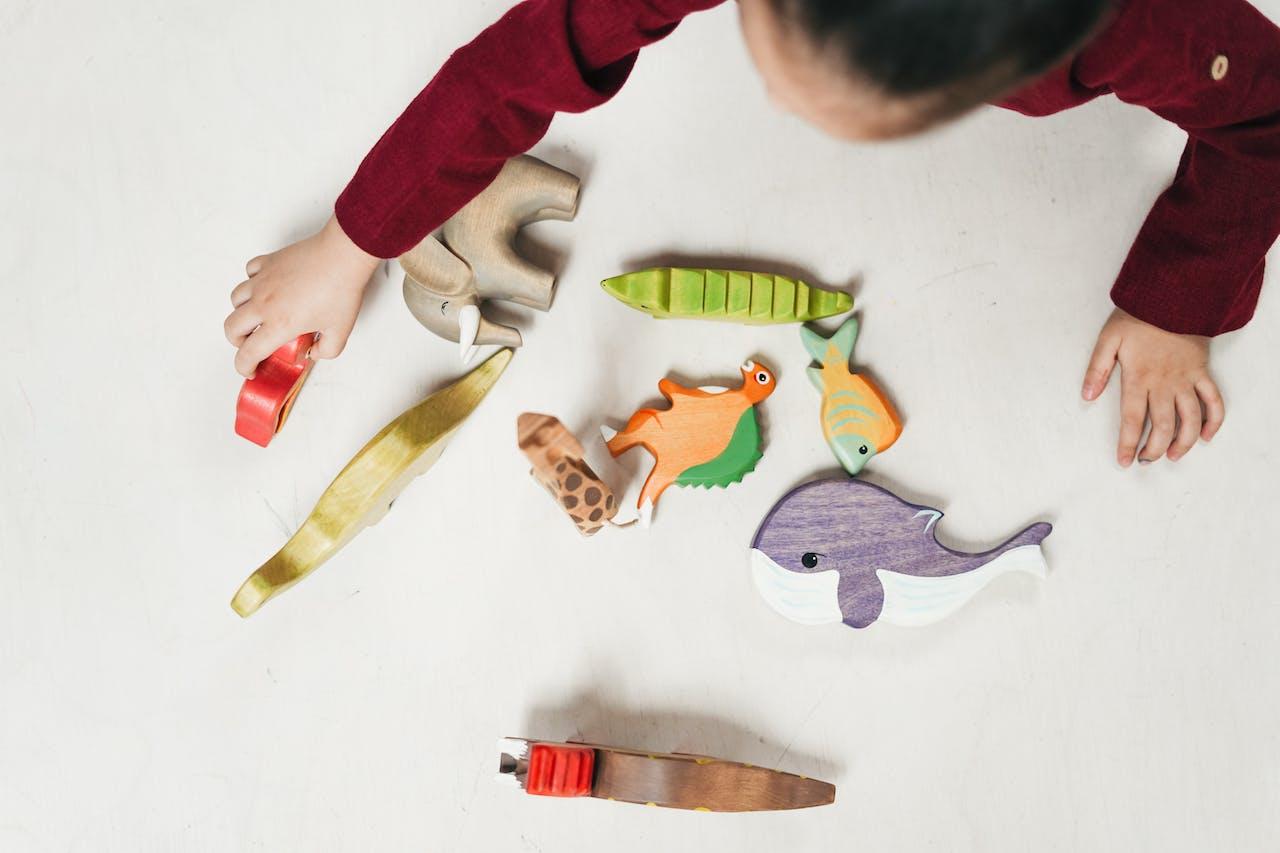
The Importance of Neurodiversity: What I Wish People Understood
About the Author
Emma, a 19 year old Autistic adult, is attending university as a freshman this fall. Emma is majoring in Elementary Education concentrating in Special Education with goals to write a children’s book normalizing all disabilities and becoming a Special Education teacher to younger children.

Artwork by Emma Greene and used with permission.
My brain processes the world differently. It has to compensate for its slow processing speed by attempting to find quick ways to cope. It’s exhausting most of the time. My brain is not less than a neurotypical brain; it is simply different. Autism is a spectrum, so every Autistic person is unique. It isn’t a straight line from “low functioning” to “high functioning,” instead it is more like a color wheel, and each color is an autistic trait. The brightness of each color is the level of how it affects a person, and this changes throughout the day.
Some days my processing speed is faster. I’m able to keep up with the demands of the day, but as the day goes on, I get tired, and my processing speed slows, making it harder to process verbal information. Other days, my processing speed is slow. Due to my Autism, I fatigue quicker than neurotypical people. My brain is constantly working to ensure that I don’t miss anything, but more often than not, information goes in one ear and out the other.
Looking back, there were some obvious signs that I was autistic. Some of the signs that I notice looking back are repetitive play, intense sensory issues, taking things literally, having anxiety, and having different social mannerisms. Sensory issues appeared in school when the clothes I wore were too scratchy, the classroom smelled like apples and cinnamon (and therefore made me gag), or when the fire alarm suddenly sounded. During lockdowns the principal would warn us that the fire alarms might sound, and that was enough to send me covering my ears tight.
I have always struggled in school. I never spoke to a classmate, or teacher, even if they spoke to me. I had severe sensory issues, making the smells, lights, sounds, and textures very overwhelming to me. I also struggled academically. I struggled with math mainly, but also reading comprehension, and writing paragraphs. I had problems with fine motor skills, which made handwriting and drawing difficult. I also struggled with gross motor activities such as riding a bike and running. Over the years, though, my challenges evolved. I used to have issues with more physical things, but I now primarily struggle socially. Being autistic in school is a challenge, especially because public schools were designed for neurotypicals. Public schools have expectations designed for neurotypical students. Classrooms that don’t meet sensory needs, grading that puts disabled kids at a disadvantage, and social expectations that are unfair to autistic students. Neurotypical people usually have no issues joining groups, and in fact, some even enjoy it! I don’t mind being in small groups, though I struggle with back-and-forth conversations. Because of this, I often appear disinterested. I may not wear my interest on my face or have follow-up questions, but I am interested in what people say. I am interested in joining groups. Most of the time it may look like I’m ignoring people but the truth is that I just don’t know what to say next. The conventional conversation moves too fast for people like me.
All of it takes a toll during the day, and sometimes I just need time to recharge my batteries. When I sit alone at lunch, I am taking much-needed time and space to tune everything out and rest. It wasn’t always like that though. I used to hate lunch. I hated the noise. I hated having no one to sit with when I had no friends at lunch. That is one way that the pandemic has been a blessing to me, that for a while, social distancing was encouraged. I have always appreciated invitations to sit with people at lunch, though, even if I don’t always take the offer. The truth is that lunch is an overwhelming place. It is loud and unpredictable. Sometimes I enjoy sitting alone because it gives me some time to regroup and recharge for the remainder of the day.
I feel like I get more done when I work alone. It’s more efficient. When a teacher announces group work, my heart sinks unless the groups are assigned. I don’t hate working with people, honestly, it is just easier for me to work alone. You see, I don’t have the skills required for joining a group, and I am in awe of people who do. For this reason, I have always depended on teacher support to join groups, and I am grateful for their support. I wish I wasn’t dependent on other people for certain successes, but I can’t really control that. Looking back, I have come such a long way. I have much less support than I did even as a freshman, and for that I am proud. I am proud of freshman me for recognizing my strengths and my weaknesses.
I learned that sports took a toll on my self-esteem. I wasn’t good at them. I was too uncoordinated, too clumsy, and too slow. While I was trying to play sports, I was also learning to play the flute in the school band. I truly enjoyed it and could have practiced for hours if time allowed. In eighth grade, I started taking private lessons to improve my technique and hopefully get into some honor bands. After 2 years of auditions, I was successful. The first time I got into Jr. Semsba and Jr. District was my freshman year, and that’s when I realized that I should focus my time and energy on doing something that I love regardless of what society tells me. I learned to be ok with not being an athlete, and not having the skills needed to play sports.
Since learning about my autism two years ago when I was seventeen, I have decided to pursue a career in special education, hopefully working with young autistic children in their most formative years. I would provide a unique perspective as an autistic teacher. I am attending Bridgewater State University in the fall, studying Elementary education with a Special Ed Concentration. My goal is to be the teacher that I needed when I was young: a teacher who set neurodiversity affirming goals and understood how hard I was working. Luckily, my elementary experiences have been great over all. Autistic teachers would provide a different perspective to special education and a better understanding of the importance of neurodiversity.
Each Autistic person is unique. Not all autistic people are like me. When you’ve met one autistic person, you’ve met one autistic person. Each of us is different, just like a fingerprint. Some people are athletic, some people are artistic, some people are musical, and some people are performers. Our differences are what make us beautiful.
Stay Current
Subscribe for AANE weekly emails, monthly news, updates, and more!






